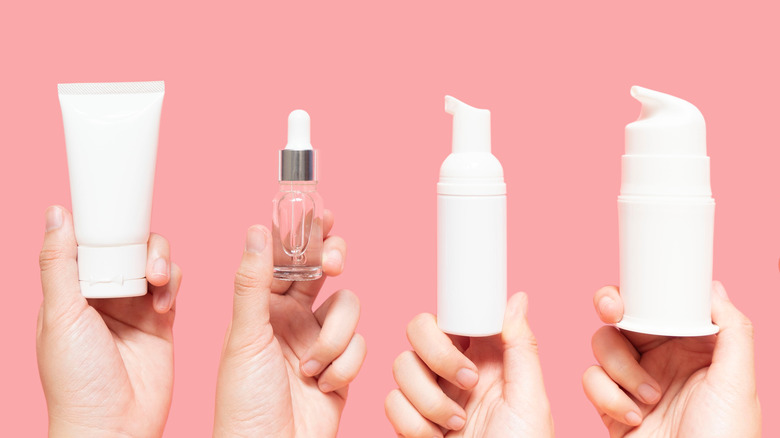The Real Reason Your Skin Changes In Your 20s
After grueling through random breakouts, authority complexes, and mean girl trauma, you and your skin are past your teenage years. Congratulations! As you both go to pick up your award, you're introduced to Puberty Premium — a whole new balance of hormones affecting your skin in your 20s. Nicole Granato, a women's health specialist, told Byrdie, "When our hormones are acting out, they express themselves much like we remember when we were teenagers. Our 20s is the time when we start really understanding our hormones and the effects they have on our body. I find that many women experience weight gain, acne, hair loss or growth in odd places, as well as irregular menstrual cycles."
All of these directly affect your skin and it looks different at every stage in your 20s — it's not just the random acne outbreaks from your teens. Depending on the exposure your skin's had to the sun, genetics and your skincare routine, you could experience discoloration, dullness and the appearance of fine lines. Read on to know why these changes happen to your skin and what you could do to make the transition into your 30s easier.
Stick to a skincare routine
Yes, your 20s are when your body produces hormones more evenly than when you were a teenager — but they can often fluctuate because of your lifestyle, like adapting to the stress of adulthood and struggle meals while your body is simultaneously preparing for you to get pregnant. "Even if pregnancy isn't on your radar right now, when you're in your 20s, your body is still trying to function as if it's capable of producing healthy offspring," holistic physician Jaclyn Tolentino told Vogue.
For your skin, that means a lot of things. Your levels of progesterone could make your complexion seem visibly duller as it affects body fluid retention as well as dehydration, per Byrdie. You might also see the sun damage creep up in the form of fine lines and dark spots. "During your mid-20s, your skin, which used to turn over cells very quickly, starts to slow down... This means that dead cells can build up more easily on the surface and can cause discoloration. It can also cause your skin to lose its elasticity," Dr. Alissia Zenhausern cautions, per Modern Dermatology. Your collagen production also starts to slow down at this time, so it's important to craft the perfect skincare routine.
Zenhausern recommends hyaluronic acid to boost hydration while making sure to apply sunscreen regularly. A good retinol product might also help with the appearance of fine lines while increasing collagen production. The verdict: stick to a routine and talk to a dermatologist that you (and your skin) approve.

